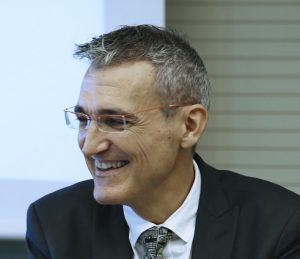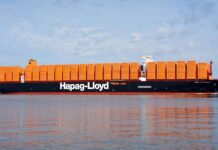
European shippers believe that the shipping lines’ reaction to the slump in demand as a result of the pandemic has been understandable, initially, but as the crisis developed the lines shifted from coping with under-utilised ships to profiteering.
Jordi Espin, the European Shippers’ Council policy manager for maritime affairs, told Container News, that shippers are concerned about the level of capacity cuts and the lack of service.
“It is not a strange situation,” explained Espin, “Three years ago there was an even greater peak of blank sailings caused by a reshuffle of schedules, this was known as ‘the booking crunch’, it was not a lack of demand then. And the lines were forced to call for blank sailings, but they kept rates as they were.”

Today the carriers have made their own arrangements to cope with the decrease in demand, but now the rates are soaring, and even as demand is increasing capacity is being managed for the benefit of the lines, this is considered to be opportunistic by shippers.
This year the lines have been merging services and blanking sailings, but now the lines are pushing the rates up further and this year there has also been a substantial decrease in the cost bunker fuel, without a reduction in rates, claimed Espin.
“We believe that the ultimate goal of the lines was to increase rates, not to manage the decrease in demand,” he said, adding, “they [the shipping lines] created a situation where shippers will have to pay more, it’s completely immoral, it is not a reflection of the demand.”
According to Dutch consultancy Dynamar, in its recent analysis of the Asia to Europe trades, “Overall annualised trade capacity now stands at 9.31 million TEU, a reduction of 18% compared to a year ago. In reality, capacity is even lower, due to the cancellation of quite a large number of sailings. Notwithstanding, the average ship size went up by 1,400TEU to 16,600TEU, indicating that it is the smaller ships that are being phased out.”
Shippers are at a loss as to the scheduling of vessels and the scarcity of capacity makes it difficult for shippers to adapt.
“Shippers cannot easily plan any more, they just have to hope that their production schedules meet the lines’ schedules,” said Espin, who argued that shipping lines should “go back to meeting shippers’ needs.”
Costs for shippers are rising as the mismatch between the production and delivering products to market means that there is more inventory delayed in ports.
Espin explained that there was a problem where contingencies for supply chain interruptions were unable to be utilised because the vessel services had been cut.
“We didn’t foresee this problem with intermediate stocks,” he said. Those stocks located around the world were ready for repositioning to places where the demand was, but the lack of capacity due to low demand prevented the movement of that inventory.
Nick Savvides
Managing Editor





